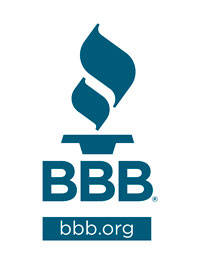Intimidated, panicked and terrified. These are often the feelings victims experience while in the midst of being conned. Impersonator scams can be so convincing and frightening that anyone can be a victim.
A jury duty scam hit close to home when a Better Business Bureau employee found herself caught up in the scam and ended up losing nearly $2,000. And when it was over, the scammers attempted to recruit her to con others. To make sure this doesn’t happen to anyone else BBB is sharing her story.
The BBB employee had previously requested a delay to a March 20 jury summons and was issued a confirmation postcard from the courthouse. On March 20, someone phoned her parents and told them their daughter had failed to appear to jury duty and needed to call the sheriff’s office.
On March 21, the BBB employee got in touch with the scammer impersonating a Thurston County Sheriff’s officer, who told her there was a mix-up with her delay request, and she was going to be arrested and charged with contempt of the court and failure to appear. In order to avoid arrest, she was told to purchase a “bonding certificate” and take it to the Thurston County Sheriff’s office along with her delay confirmation postcard.
The scammers kept her on the phone for over two hours and pressured her to pull the money from her account in order to purchase the “bonding certificate.” She was told to go to a grocery store and purchase MoneyPak cards worth almost $2,000 and read the numbers to them for insurance purposes. On her way to the sheriff’s office, they told her one of the cards didn’t work and she would need to purchase another. She told the scammer she couldn’t afford to purchase more cards and would need to contact her family for help. When she contacted her family, she was advised to quit speaking with the scammers and hang up. Later the scammers tried to call her and sent her a text stating: “Want your money back? You can make some too.”
BBB advises these tips to avoid jury duty imposter scams:
- Never wire money. Wiring or transferring money should automatically raise a red flag because police will never ask for payment, including Green Dot MoneyPak or iTunes gift cards, over the phone.
- Police officials never call to warn about an arrest. But if contacted by law enforcement, always ask for police identification or credentials. Hang up the phone and look up the police or sheriff department’s number listed online and call back to verify someone has just called.
- Don’t give out your personal information. Many of these scammers will ask you to verify your name, birth date and Social Security number, but jury duty notifications will never ask for personal information. This is one way scammers can steal your identity.
- Fake phone calls often come in the evening. Scammers usually call after business hours because they know they have a better chance of getting victims on the phone. If called, just hang up and don’t call back.
Those who have been affected by this scam are encouraged to report their information to their local police department, the Federal Trade Commission, Washington State Office of the Attorney General and BBB Scam Tracker.



